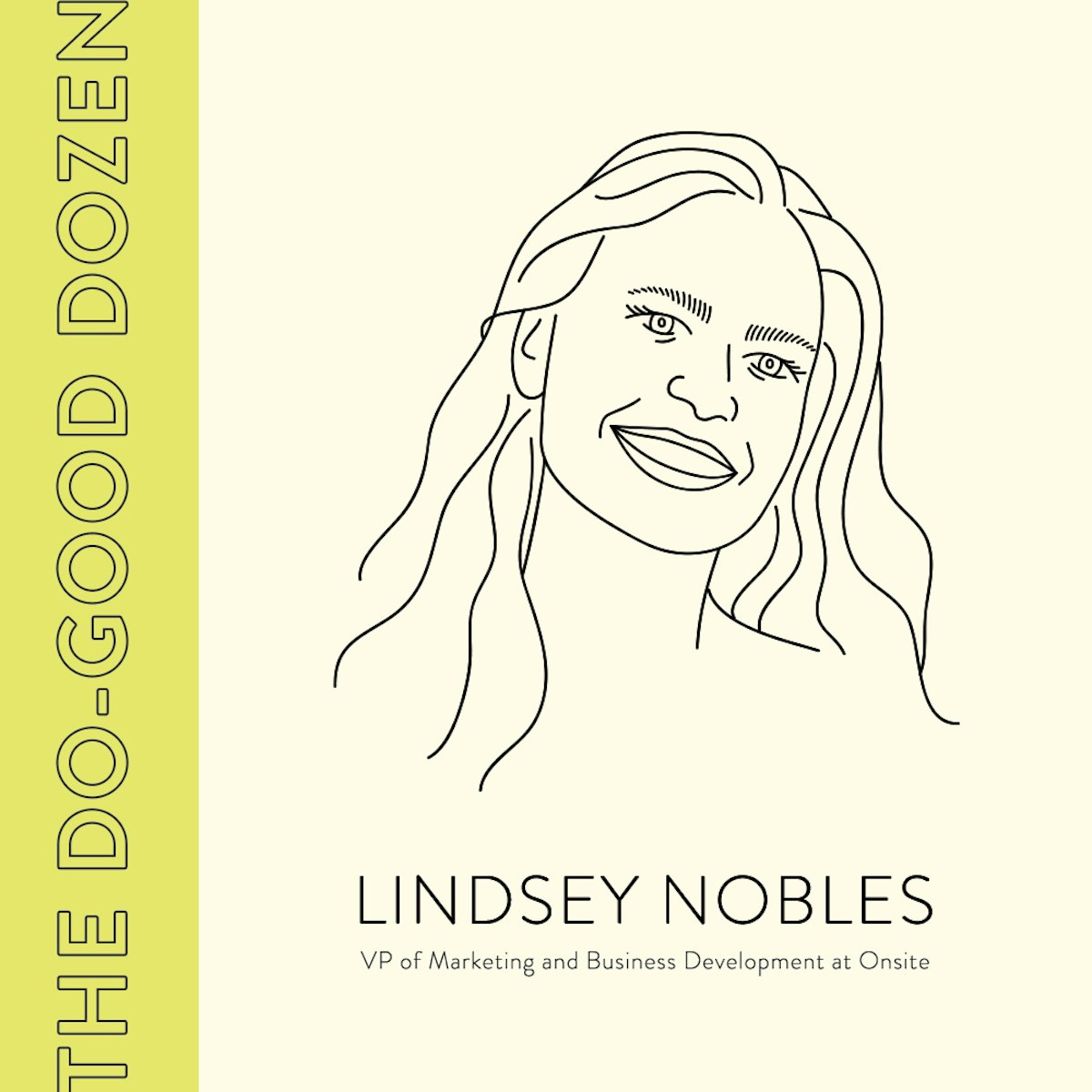Everyone deserves, needs, and is capable of healing. The stigma around therapy is increasingly being broken down as people continue to speak up with vulnerability about their stories – making places like Onsite undoubtedly valuable. This emotional health retreat center in Tennessee offers the resources to help people connect with who they are, and is filled with skilled therapists, culinary, administrative, hospitality, and marketing teams that make it run smoothly and successfully. This month’s Do-Good Dozen winner is Lindsey Nobles, the VP of Marketing and Business Development at Onsite. Her voice, described by a co-worker, “Sparks real change and reminds everyone of their true value. She has a palpable passion for honesty, self-awareness, and answering the hard questions around a table of friends and strangers.” We believe work is not simply a job title, it is how you create and find meaning in this world. Lindsey is a great example of how your skills, talents, and doing the deep inner-work can lead you to doing good in your everyday life as well as something greater than oneself. Read on to hear her own journey taking a more holistic approach to healing, as well as advice for those just starting their business.
(PS. If you haven’t heard, the CEO of Onsite, Miles Adcox, and Ruthie Lindsey (previous Yellow speaker!) will be joining us at the 2019 Yellow Conference to host a live recording of The Unspoken Podcast, where they dig deep with raw and vulnerable conversation. Grab your spot here!)
Tell us a little about where you’re from, where you live now, and what your life looked like right before joining Onsite.
I grew up in Dallas, Texas, and currently reside in Nashville, Tennessee. In 2017, I had just resigned from a non-profit that I had helped build and lead, and was in need of some emotional health resources to help me navigate this massive life transition. Several friends had attended Onsite and touted their programs, and suddenly in the midst of my stuck and aimlessness, it seemed like everyone I knew was randomly encouraging me to attend Onsite’s Living Centered Program. I finally got with the program and signed up in June of 2017 and it truly was life-changing. The masterful team of therapists at Onsite helped me move through some lingering grief and anger, allowed me to see and better understand patterns that were hindering my relationships, and gave me a healthier understanding of forgiveness. A few months later, I began talks with Miles Adcox, our CEO, about what it might look like for me to join the Onsite team.
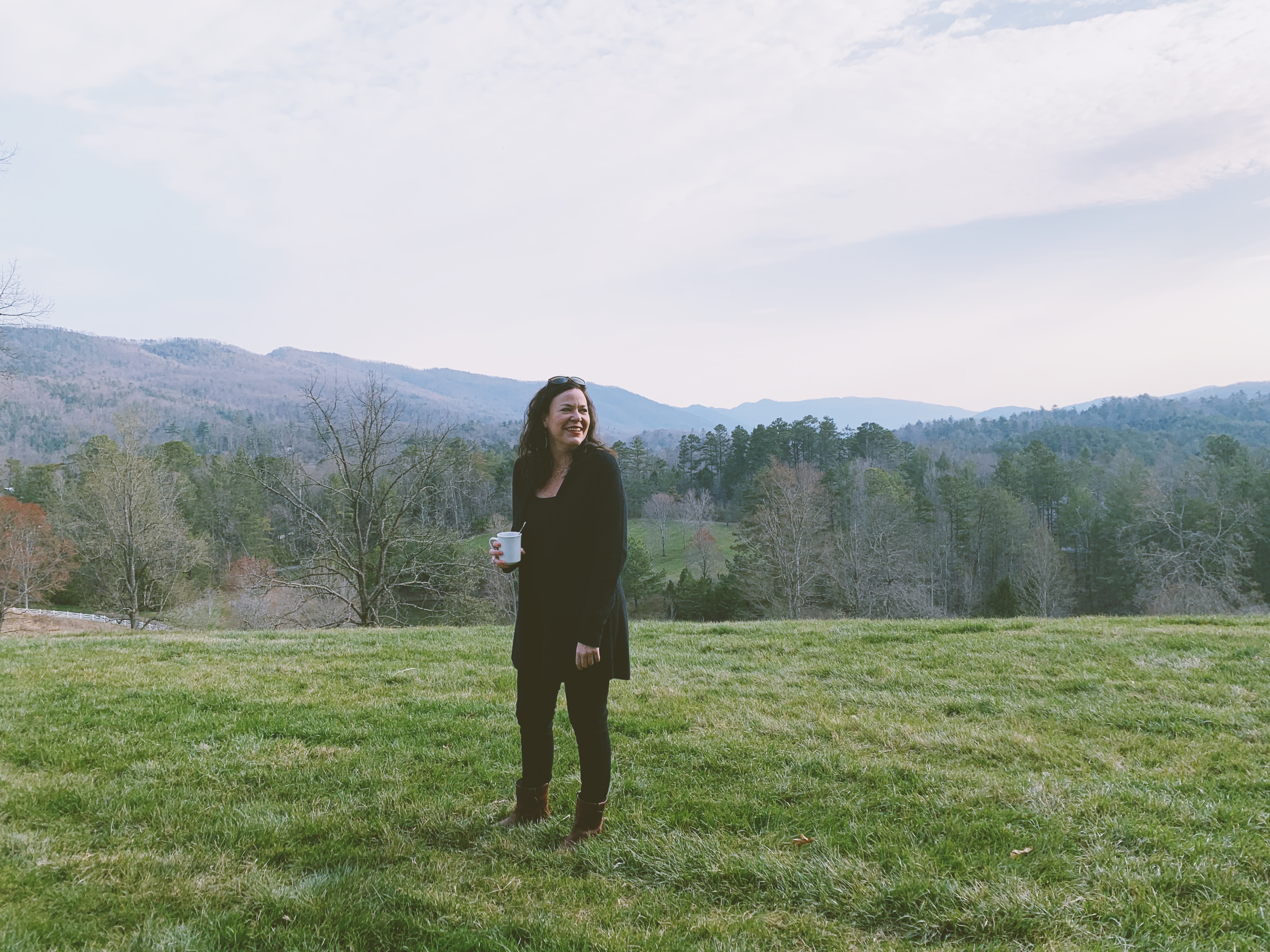
What does your daily work look like as VP of Marketing and Business Development there?
As VP of Marketing and Business Development, I am responsible for the management, oversight, and execution of marketing, branding, communication, and development initiatives for Onsite. I lead our Marketing and Business Development team in an effort to build awareness and community around Onsite, our programs and services. I get to work with an incredible team of leaders who so beautifully live out the vision of Onsite - to connect the world through empathy, self-awareness, resiliency and compassion.
One of my favorite parts of my job at Onsite is that every few weeks, I attend the closing ceremony for our Living Centered Program.
It’s so incredible to see the way that the community connects and transforms in just a week.
The attendees leave looking and sounding freer and lighter, more self-aware and self-assured, and more connected to themselves and to others.
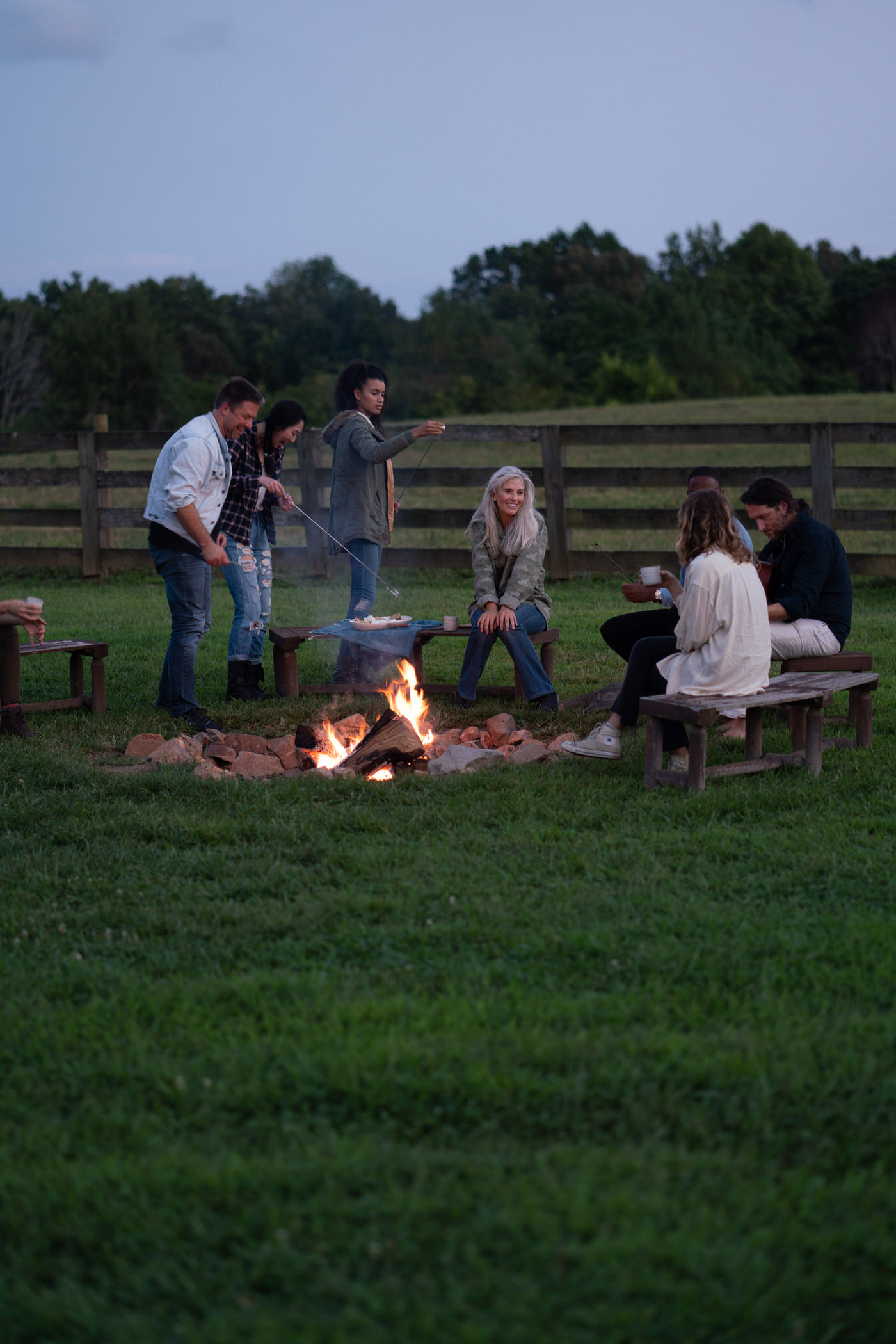
Are there any “essentials” you would suggest a small business invest in when first starting out?
From my time leading in entrepreneurial environments, I think one essential is being very selective in your early hires.
Your initial team is going to establish culture alongside you, and the mess left from hiring the wrong fit can be very hard to clean up.
Early on, I tend to look for self-starters, problem solvers, and generalists or utility players who can comfortably move in and out of different roles and/or departments. It’s also to look for someone who is okay with the ambiguity that is common in the early stages of entrepreneurial environments.
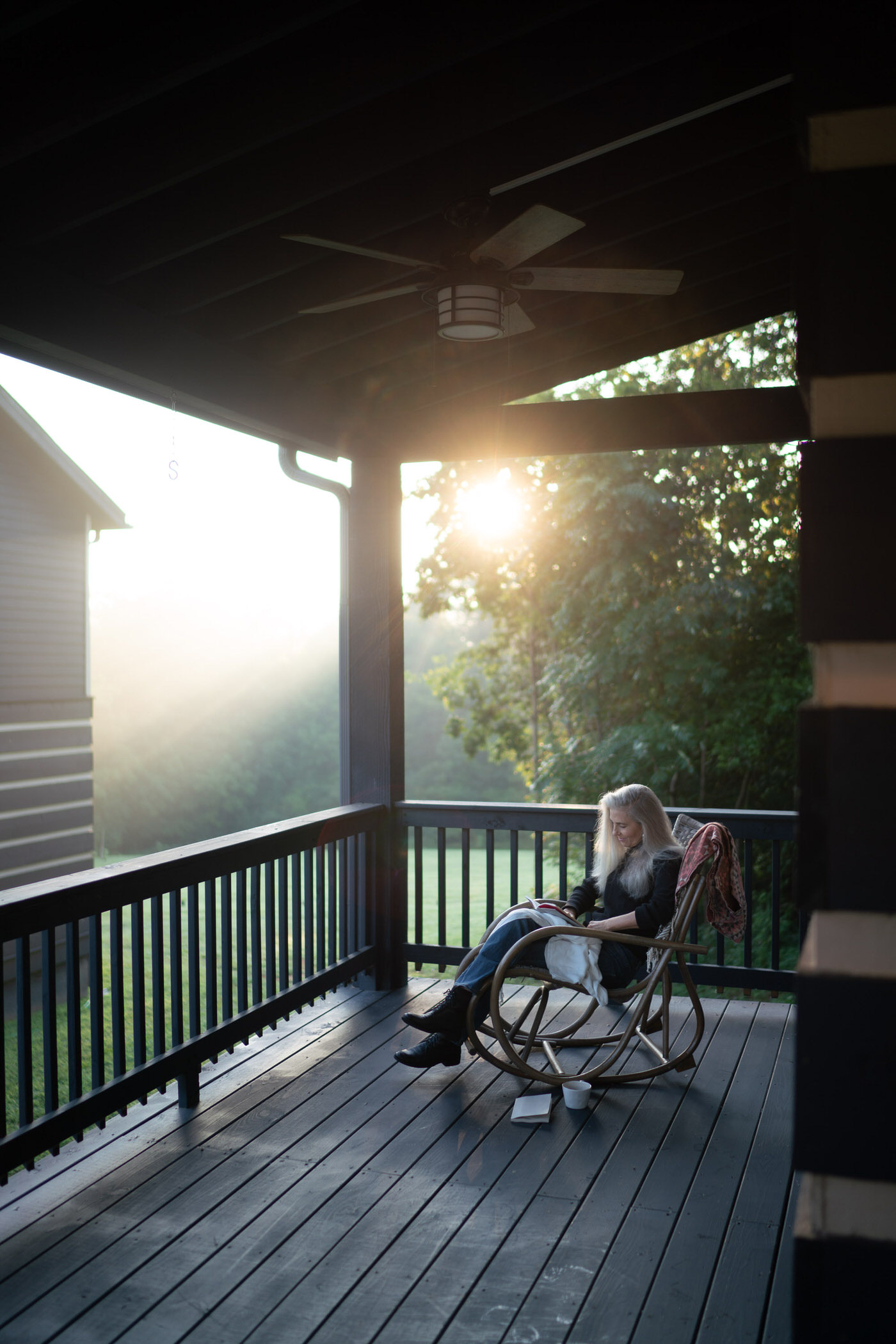
How does experiential therapy differ from the more well-known “talk therapy”? What are the different programs and activities like that Onsite uses under this umbrella of experiential therapy?
According to Psychology Today, “Experiential therapy is a therapeutic technique that uses expressive tools and activities, such as role-playing or acting, props, arts and crafts, music, animal care, guided imagery, or various forms of recreation to re-enact and re-experience emotional situations from past and recent relationships.”
A day in one of our experiential programs might include a meditation, a lecture, a trauma-informed yoga class, and then a good bit of time with a small group facilitated by one of our world-class therapists. For me personally, experiential work helped me get out of my head and experience more holistic healing than I ever thought possible. I am more of an internal processor, so “talk therapy” had always felt laborious and performative to me. I tended to not know quite what to say to make good use of a 50-minute session with a therapist. But when I attended a program at Onsite, both the group and the experiential process helped me put together the puzzle pieces and see the bigger picture - the themes and the unhealthy patterns - that I might never have found the words to describe.

For individuals or families that don’t believe therapy is necessary, or are hesitant to this kind of healing, how do you market a place like Onsite to them and earn their trust?
Our team is passionate about de-stigmatizing therapy and other emotional and mental health resources.
Miles often has said about therapy, “It’s not what we need, it’s what we deserve.”
Therapy was traditionally something that most people didn’t seek unless they were in crisis; and if they went, they were often too ashamed to talk about it. But thankfully, the tide is turning and people are seeing the power of doing preventative work, of finding someone to talk to before they are at the end of their rope, of learning repair and recovery tools, and of sharing vulnerably and powerfully their struggles and their successes.
In regards to marketing to and shifting the perception about therapy, thankfully our alumni are our best marketers. When people hear our alumni talk about their Onsite experience and see the way they show up differently after one of our programs, their curiosity is piqued and they want to experience Onsite for themselves.
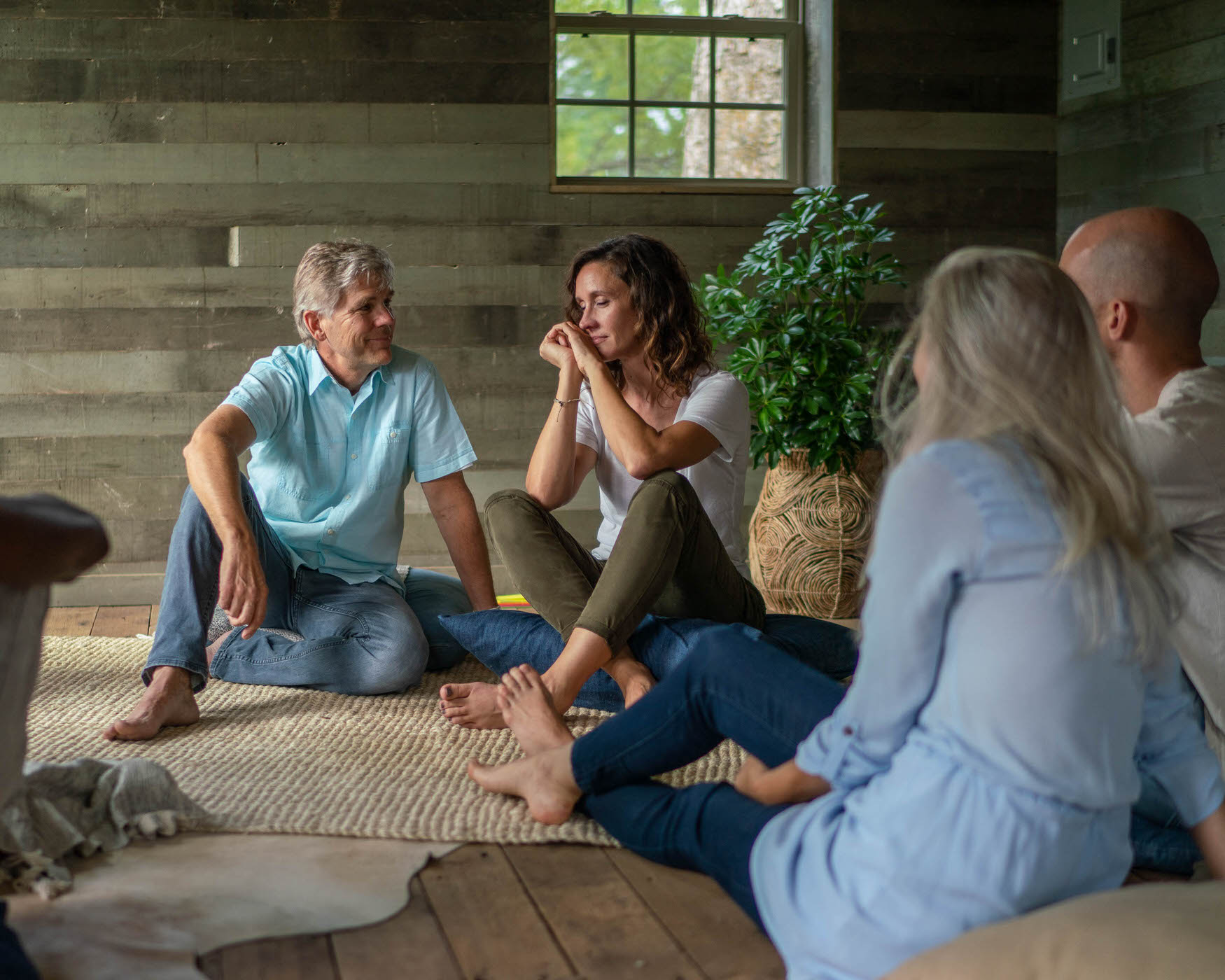
What is one self-limiting belief you’ve had to recognize, then rewrite, for yourself?
Above my desk a painting hangs that says “you are not who everyone says you are.” I realized through my work at Onsite that I have often defined my successes, and my limitations, by what other people thought and said about me. I am learning to rewrite that script and accept that my identity and my self-worth are not others to define.
What’s an experiential tool that can help someone who might not be able to attend Onsite?
One tool I learned at Onsite that I use on a daily or weekly basis to help me feel more grounded and connected is called “an emotional body scan.” It’s as simple as taking a quick time-out to connect with your dominant emotion, where in your body you are feeling that emotion, and then how strong you are feeling that emotion on a scale from 1 - 10. For example, today I am feeling anxious in my chest at about a 4. Resist the urge to explain the feeling or to try to talk yourself out of the feeling. Simply be aware of it. The exercise is about the awareness, not the change.
What is one book you would suggest to our community of women who want to create impact with their work and daily lives?
My go-to book recommendation is Parker Palmer’s Let Your Life Speak. It is a quick read, is beautifully written, and is an incredible resource on vocation.
Illustration by Hanna Snyder for Yellow Co., Photos courtesy of Onsite
